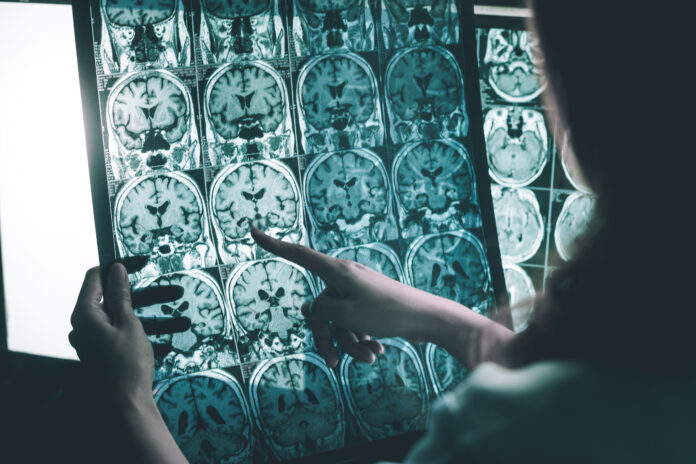LAS VEGAS– June is Alzheimer’s and Brain Awareness Month and a new survey from Parade and Cleveland Clinic shows many Americans (69%) are thinking at least once a year about their risk of developing brain health issues such as Alzheimer’s disease or dementia. However, many do not get care when they experience symptoms.
In the survey, 36% of people under 50 and nearly one-fourth of individuals aged 50-64 said they have experienced memory or brain health issues but were too afraid to seek help. While there is no cure for Alzheimer’s or dementia, in many cases, steps can be taken to reduce risk but are more effective before brain changes begin.
“The heightened attention Americans are paying to their brain health is encouraging,” says Lisa Delaney, Chief Content Officer of Parade. “We hope that our coverage of the issue helps eliminate the stigma that keeps people from getting necessary treatment.”
As the prevalence of Alzheimer’s disease and dementia continues to increase, the survey sought to get a greater understanding of Americans’ knowledge of brain health disorders, their willingness to take preventive steps and where there may be gaps in people’s understanding.
Parade collaborated on the survey with the Women’s Alzheimer’s Movement (WAM) at Cleveland Clinic, which has played an integral role in providing education and conducting research to better understand the disease’s impact on women for more than a decade. Its flagship program, the WAM Prevention and Research Center, is the nation’s first women-specific center for Alzheimer’s prevention, research and caregiving support.
“We know that women are interested in their health and concerned about keeping their brains healthy as they age,” said Maria Shriver, founder of WAM and the Chief Visionary Advisor behind the new Comprehensive Women’s Health Center at Cleveland Clinic. “We must encourage healthcare providers to initiate and have ongoing conversations with patients about brain health. Women want to be active participants in their health, and we should empower them to do so.”
The survey results showed there is a need for increased education on gender disparity and the role of lifestyle in Alzheimer’s. While women overall showed higher concern than men that they may develop Alzheimer’s disease or dementia (57% for women vs. 50% for men), they didn’t seem to know that they are at an increased risk. Nearly half of women surveyed (48%) believe both men and women are equally likely to get Alzheimer’s or dementia and 28% said they had no idea if gender played a role. In addition, only 15% of women talk to their doctors about ways to optimize their brain health. This is concerning because an estimated six million Americans live with Alzheimer’s, and nearly two-thirds of those diagnosed are women. Still, awareness has grown among women that hormonal issues and menopause can influence the risk of brain health issues.
“This survey demonstrates the need for more education around Alzheimer’s and dementia among women, so they can take preventive steps and be aware of early symptoms,” said Jessica Caldwell, Ph.D., director of the WAM Prevention and Research Center at Cleveland Clinic. We now know that up to 40% of Alzheimer’s cases could be avoided by modifying certain lifestyle behaviors, so there is tremendous power in addressing these behaviors as early in life as possible.”
Encouragingly, most respondents say they do at least one activity to keep their brain healthy, with exercise (68%) and eat healthfully (64%) the top two actions taken. Women say they are more likely than men to do “brain games” (57% vs. 47%) as well as socialize with others (54% vs. 44%) to boost brain health. The survey also found that across the gender and age spectrum, when celebrities are willing to share their personal experiences with brain health issues, it has an impact. More than half of adults (56%) say that the stories of celebrities and personalities who have dementia inspire them to learn more about the ways to protect their brain health.
The survey also revealed a surprising level of concern among young people, with one in 10 saying they think about developing a brain health issue daily, more often than any other age group. Despite their heightened awareness, the survey results indicated that young people are more likely to believe certain myths about Alzheimer’s, including:
- 44% of those aged 18-34 agreed that if a close relative has Alzheimer’s, you are guaranteed to get it.
- 38% of ages 18-34 agreed that you only have to worry about Alzheimer’s if someone in your family has it.
However, the reality is that having a close family member with Alzheimer’s increases your risk 20-25% over someone without a family member with Alzheimer’s.
The Parade/Cleveland Clinic Healthy Now Brain Health survey was conducted online between April 24-29, 2024, using QualtricsXM, and collected responses of 1,003 American adults age 18+. Respondents randomly received a pop-up on their desktop computer or mobile phone asking if they would like to participate in a short survey. Quotas were set for demographics such as gender, age, income, and race/ethnicity to ensure the final sample was representative of total U.S. population.


